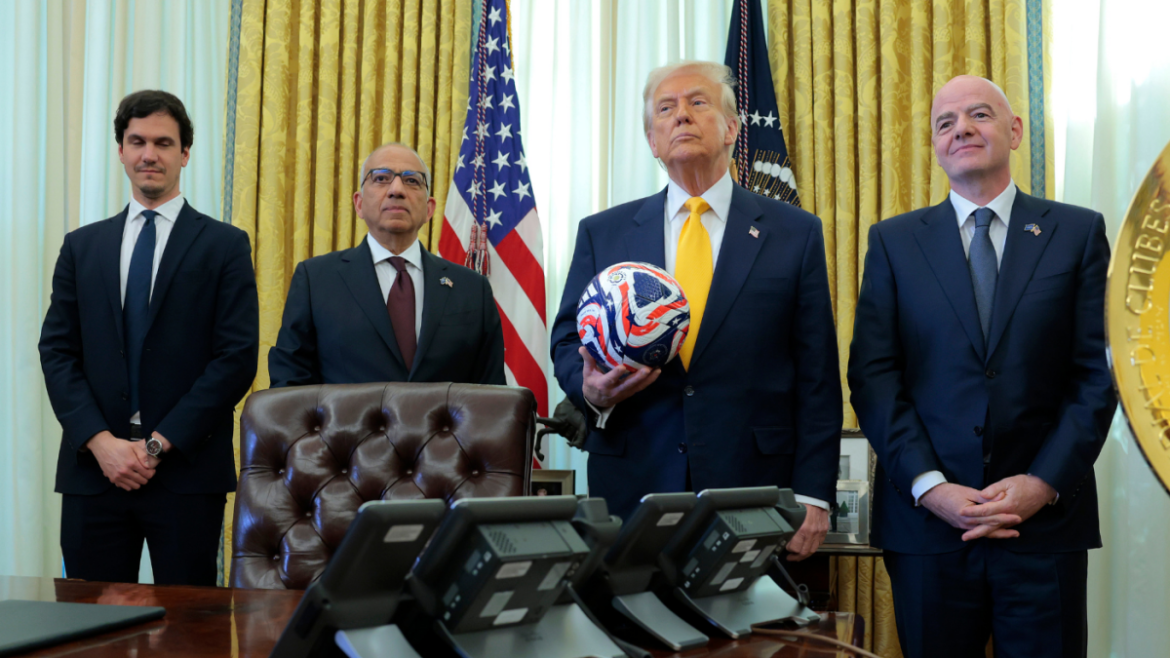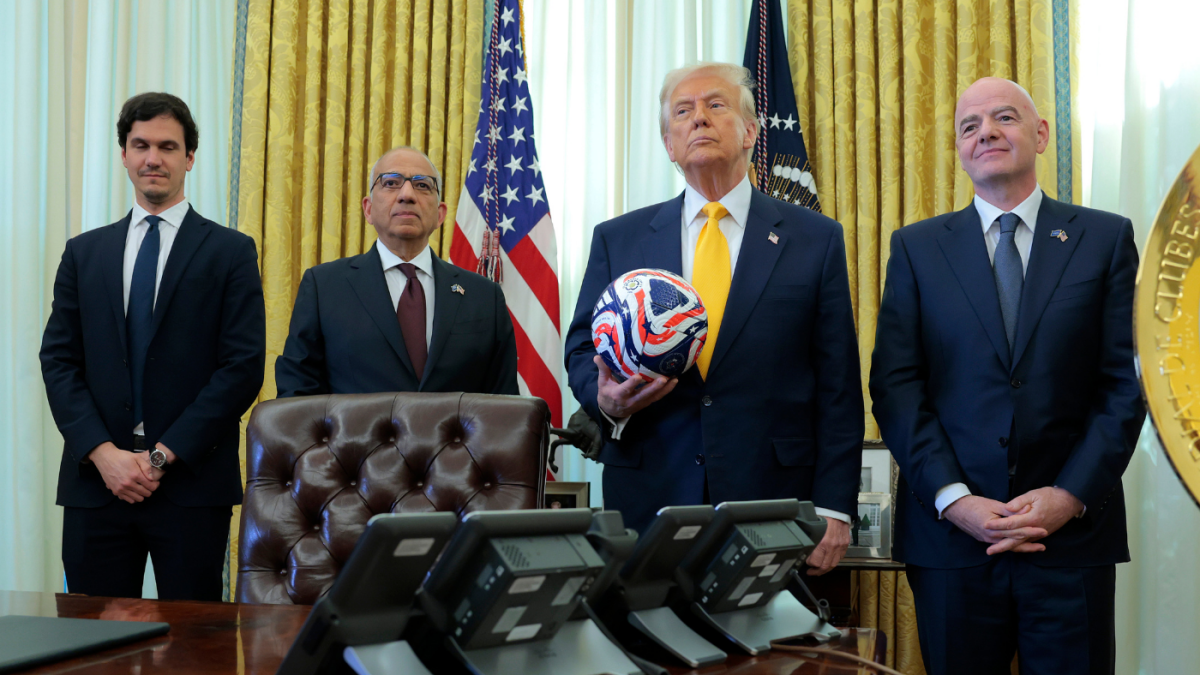The Appointment of Andrew Giuliani: A Strategic Move for the 2026 FIFA World Cup Task Force
The appointment of Andrew Giuliani as the executive director of the 2026 FIFA World Cup task force by President Donald Trump is a move that has sparked considerable interest and debate. This decision, announced on Tuesday, positions Andrew Giuliani, the son of former New York Mayor Rudy Giuliani, at the helm of a significant presidential initiative. The task force, established in March 2024 through an executive order signed by Trump alongside FIFA President Gianni Infantino, aims to prepare the United States for hosting the 2026 World Cup. This report delves into the implications, strategic considerations, and potential outcomes of this appointment.
Background and Context
The 2026 FIFA World Cup is set to be a monumental event, with the United States, Canada, and Mexico jointly hosting the tournament. The establishment of the White House Task Force on the FIFA World Cup 2026 underscores the administration’s commitment to ensuring the successful execution of this global sporting event. The task force is mandated to coordinate with various executive departments and agencies to assist in the planning, organization, and execution of the events surrounding the 2026 World Cup.
The Strategic Appointment of Andrew Giuliani
Andrew Giuliani’s appointment is not merely symbolic but strategic. As the son of Rudy Giuliani, a close ally of President Trump, Andrew brings a unique blend of political acumen and familial connections that could prove invaluable in navigating the complexities of organizing a World Cup. His role will involve coordinating efforts across multiple government agencies, ensuring that all logistical, security, and infrastructural preparations are meticulously executed.
Political Synergy
The appointment leverages the political synergy between the Trump administration and the Giuliani family. Rudy Giuliani’s extensive experience in public service and his strong ties to the Trump administration can provide Andrew with the necessary support and influence to overcome potential bureaucratic hurdles. This political capital can be crucial in securing the resources and cooperation needed from various government entities.
Familial Connections
The familial connection to Rudy Giuliani also brings a sense of familiarity and trust within the administration. This trust can facilitate smoother communication and decision-making processes, ensuring that the task force operates efficiently and effectively. Andrew Giuliani’s background in politics and his understanding of the administrative landscape can help in aligning the task force’s objectives with the broader goals of the Trump administration.
Potential Challenges and Opportunities
While the appointment of Andrew Giuliani presents numerous advantages, it also comes with its own set of challenges and opportunities.
Challenges
One of the primary challenges will be managing public perception. The appointment of a high-profile figure like Andrew Giuliani may attract scrutiny and criticism, particularly from those who question the qualifications and experience of the appointee. Additionally, the task force will need to navigate the complexities of international relations, ensuring that the interests of all host countries are adequately represented and addressed.
Opportunities
On the other hand, the appointment presents significant opportunities. Andrew Giuliani’s leadership can help in fostering a sense of unity and purpose within the task force, driving the team towards achieving the common goal of a successful World Cup. His connections and influence can also open doors to potential partnerships and collaborations, both domestically and internationally.
The Role of the Task Force
The task force’s responsibilities are multifaceted and critical to the success of the 2026 World Cup. These responsibilities include:
– Infrastructure Development: Ensuring that the necessary infrastructure, such as stadiums, transportation, and accommodation, is in place and meets international standards.
– Security Measures: Implementing robust security protocols to safeguard the event and its participants.
– Logistical Planning: Coordinating the logistical aspects of the tournament, including transportation, accommodation, and event management.
– International Collaboration: Working closely with the other host countries, Canada and Mexico, to ensure seamless execution of the event.
Conclusion: A Vision for Success
The appointment of Andrew Giuliani as the executive director of the 2026 FIFA World Cup task force is a strategic move that leverages political synergy and familial connections to drive the success of the event. While challenges exist, the opportunities presented by this appointment are significant. With a clear vision and effective leadership, the task force can overcome obstacles and deliver a World Cup that not only meets but exceeds expectations. The success of this initiative will be a testament to the administration’s commitment to excellence and its ability to harness the strengths of its team to achieve a common goal. The 2026 FIFA World Cup is poised to be a historic event, and with Andrew Giuliani at the helm, the stage is set for a triumphant and memorable tournament.





